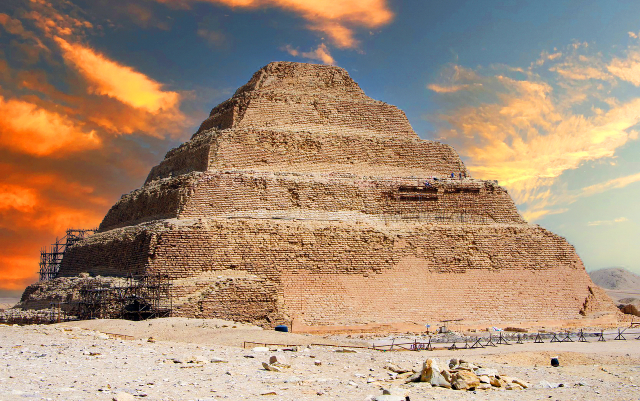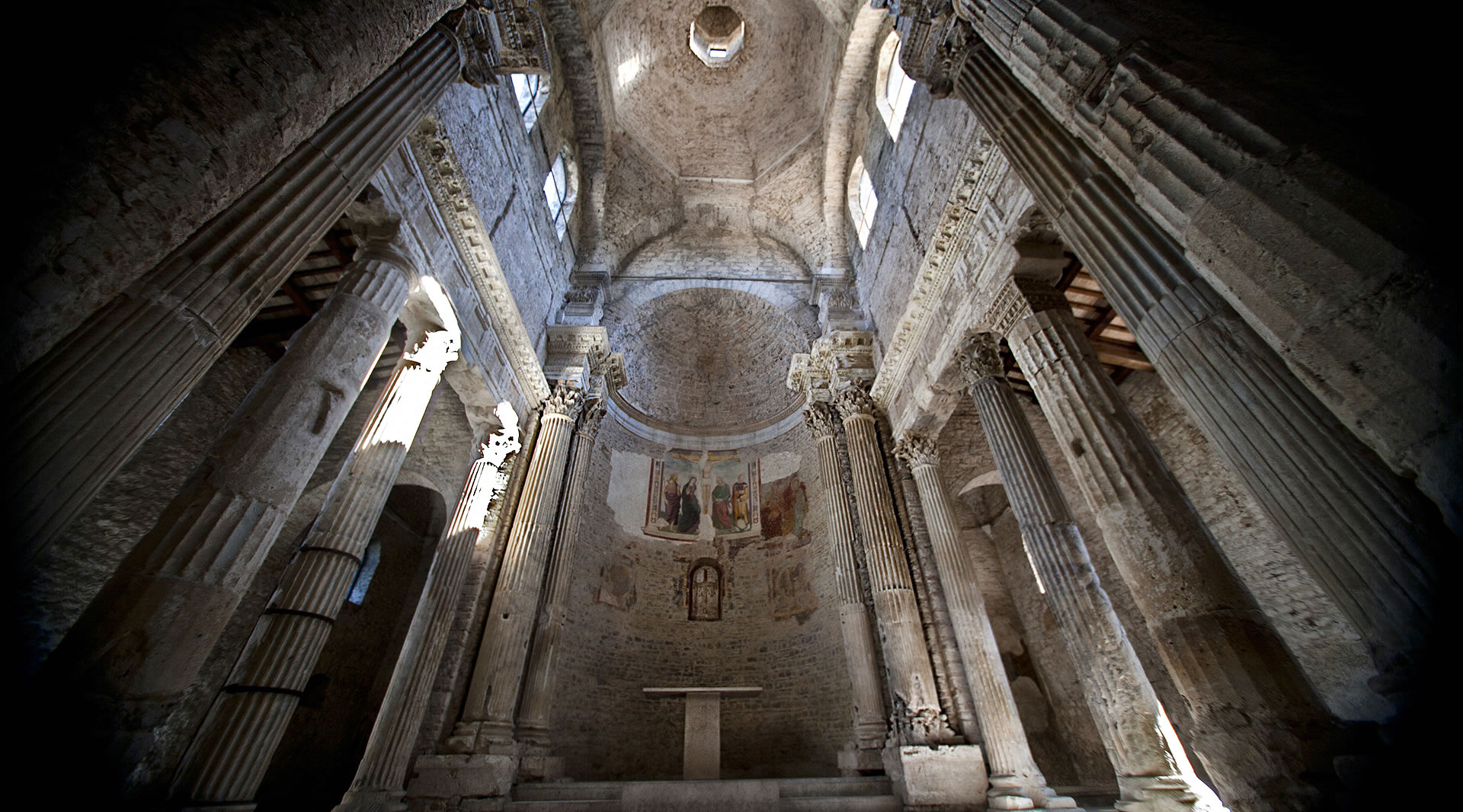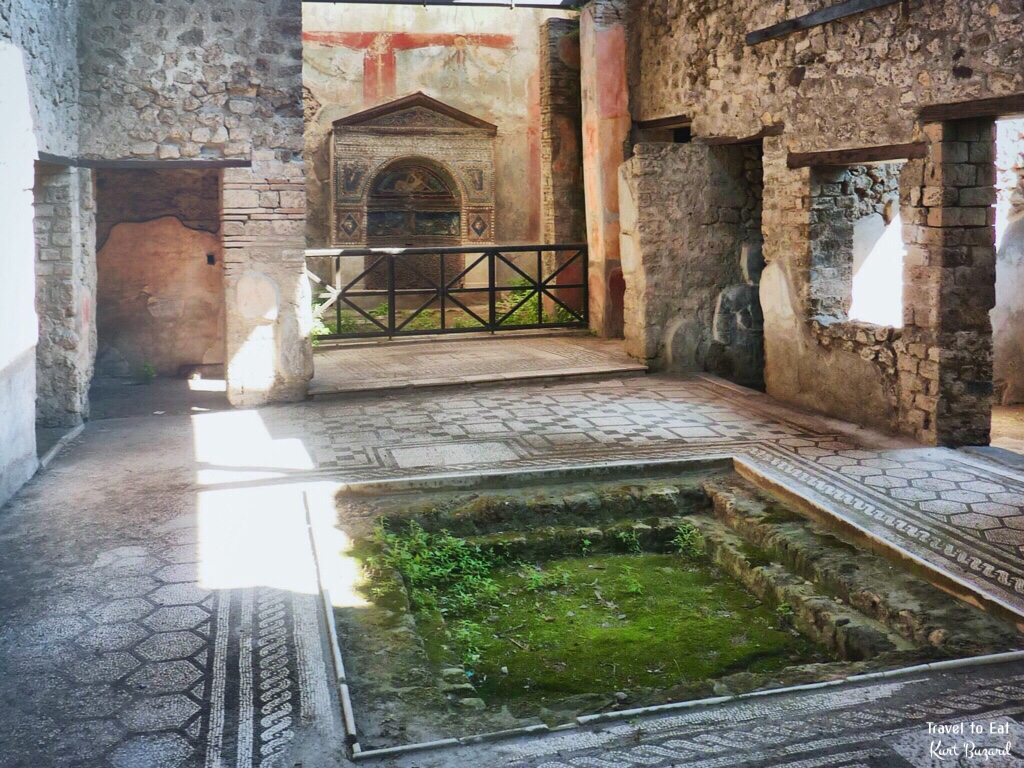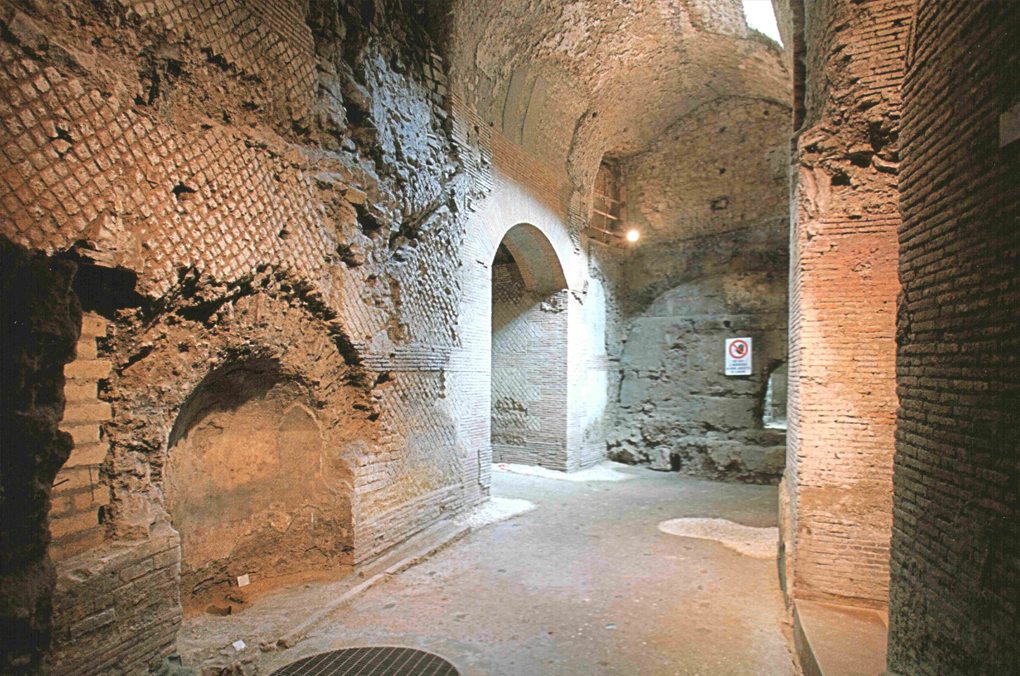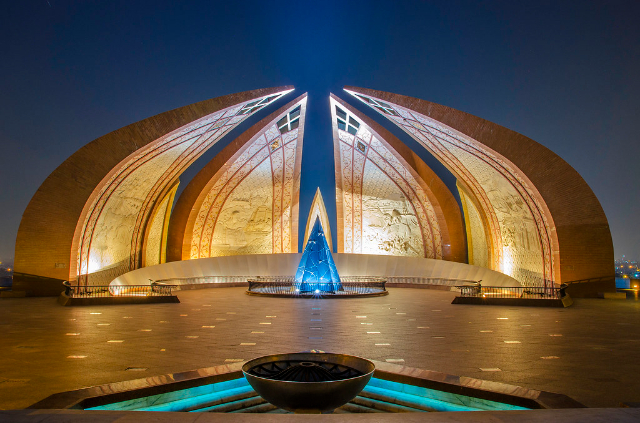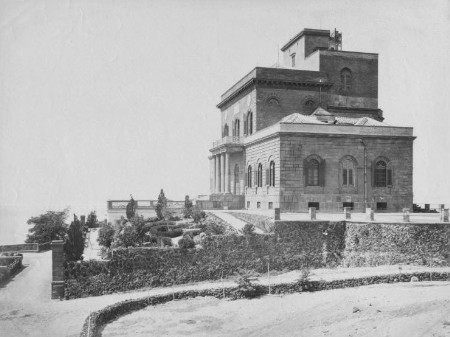At Saqqara is Step Pyramid of Djoser, considered the first pyramid in the world and the oldest large stone structure. It is also considered the first pyramid in Egypt, being a model and predecessor of the iconic Pyramids of Giza.
Step Pyramid of Djoser was built shortly before 2600 BC by Imhotep, the great administrator of Pharaoh Djoser and a priest. the first architect in history whose name we know had a revolutionary idea to build the mausoleum of the Djoser, second pharaoh of the third dynasty and who ruled from 2665 to 2645 BC.
*The great innovator Imhotep chose to use stone rather than mudbrick and to build not just one mastaba but six, one on top of the other, with each additional layer 2 k smaller than the one beneath it.
*On the north side of the pyramid, there is a life-size painted statue of Djoser installed within a Serdab, a stone box designed to allow the dead king’s ka (spirit) to interact with the living world. The statue is a replica – the original is in Cairo’s Egyptian Museum.
*Some of the oldest known examples of tourist graffiti, dating from the 12th century BC, can be seen preserved under perspex in buildings east of the pyramid.
as well as a group of solid buildings whose purpose was to commemorate The Sed-festival (Heb Sed)
The Heb Sed was a ceremony where every thirty years of his reign, some festivities were carried out in order to regenerate the monarch’s energy, who was crowned again as king of Upper and Lower Egypt.
The 60-meter-high complex consists of six parts superimposed on a 28-meter-deep and seven-meter-wide tomb. In the center of the pyramid and at a depth of 28 meters is the chamber where Pharaoh Djoser was buried in a 40-tonne sarcophagus.
But how did they get such a heavy sarcophagus down so deep in the step pyramid?
Well, it turns out that next to the main shaft, two other parallel ones were dug. The main shaft was filled with sand, and the sarcophagus was placed on top of it. Meanwhile, the sand was extracted from the parallel shafts, and the sarcophagus was lowered little by little until it reached the main chamber, which was sealed with several granite blocks.
Unfortunately, even such a marvel is not immune to the passage of time: more than 4500 years later, the first great monument in the history of Egypt is in serious danger.
After 14 years of restoration, Egypt reopened the step pyramid of Djoser, The first quarter of 2020. In 2006, the ambitious project Re-building to step pyramid of Djoser, after decades of neglect and risk of collapse, began.
Although the pyramids of Giza are the best known in Egypt, the step pyramid of Djoser, in the necropolis of Saqqara that has special importance.
